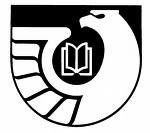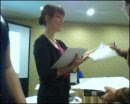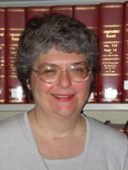Friday, May 2, 2008
My Request for Feedback--April 29, 2008
I have volunteered to write up a section on standards and training for regional depositories. Would you all mind taking a moment to tell me what is most important to you in terms of expectations for regionals? If standards were to be developed and implemented, how would you like to see this done?
Any and all ideas welcome—but I need to have this pretty solid by end of day tomorrow (sorry, I also am suffering from the lack of time to actually think through some of these issues—the pressure is definitely on).
Stephanie
After that, I received emails from several of you and would like to share them with the group. I also posted the Draft of the ASERL Response. With Lori Smith's permission, I have copied her responses and posted them here as comments. Because I am using my own log-in to post her comments, the comments reference my name. Don't be fooled--they are really from Lori!
****UPDATE****
I am adding Ferol's and Howard's comments (with their permission)--but am adding them to a separate place on the blog. Look under the postings at the heading "Comments from You All Concerning Regional Issues."
SGB
Thursday, May 1, 2008
Response from ASERL to Study of Regionals
ASERL Collaborative Federal Depository Program Steering Committee response to GPO Study of Regional Depositories request
Regional libraries of the Federal Depository Library Program (FDLP) are individually and collectively facing challenges that inhibit their ability to effectively deliver a high level of service to the selective libraries and populations of their regions. Collaboration is key to strengthening the ties among Regionals, and between Regionals and the selective libraries they serve. Formal collaboration, such as that proposed in the Kansas-Nebraska shared regional, is a vital component of the success of our Regional libraries as they respond to the changing environment for libraries and information services. Regional depository libraries are currently exploring collaborations in order to meet some of these challenges. It is our view that Congress and the Government Printing Office (GPO) should continue to encourage and support these collaborations.
Preservation: Support collaborative efforts to develop redundant electronic collections.
The goal of the FDLP is to provide no-fee access to current and historic government information, regardless of format, yet there is no distributed preservation strategy in place for the born-digital materials that increasingly make up the FDLP collection. To ensure that today's electronic government publications are freely available in the future, the GPO should continue working towards a distributed preservation strategy for both print and electronic materials.
Flexibility: Support continued flexibility for Regional libraries to manage their collections.
The current network of Regional libraries, with its redundant, poorly described tangible collections, provides an inefficient, informal, incomprehensive preservation strategy for printed and re-formatted government information. By proliferating multiple copies of all printed or re-formatted materials to each of the fifty-three Regional depository libraries and proscribing that they be retained, Congress and the GPO have attempted to ensure the long-term survival of tangible government information.
Regional depository libraries must continue to have flexibility in managing these collections – including the ability to continue to use re-formatting to preserve and make accessible older materials. Preservation reformatting is being used by many of our libraries for other non-FDLP materials, some of which are quite rare.
Access: Support collaborative efforts to catalog Regional library collections.
The lack of comprehensively cataloged Regional collections hinders access. Comprehensive cataloging strengthens the FDLP as a whole by providing public access to otherwise unidentifiable materials. Comprehensive cataloging of Regional library collections also aids the work proscribed in Title 44 Section 1912 – “assistance for depository libraries in the disposal of unwanted Government publications.” Regionals are currently attempting to collaborate by sharing information on retrospective cataloging projects in their institutions, but would greatly benefit from a renewed emphasis on cataloging of these older materials by the Federal Government.
Standards: Support collaborative efforts to define standards of service for Regional libraries.
There is no standard for evaluating a Regional depository. In many cases, services and access to depository resources are dependent on individuals, leading to inconsistencies across institutions as staff and administrators come and go. Participants in the FDLP are self-funded and voluntary, which makes it difficult to impose standards. However, Regional libraries should work toward consistent service across states, and Selectives need to know what to expect from their Regionals. Minimum standards should be developed, with input from the GPO, Regionals, and Selectives, and should be outlined in official FDLP documentation such as the FDLP Handbook. GPO should host an orientation for new Regional librarians prior to the Depository Library Conference, as a way to introduce new Regional depository librarians to some of the issues that they will face during their tenure. Positions continue to blur as depository coordinators also are expected to perform duties that in some cases are completely unrelated to depository operations. This makes education extremely important – both of new depository coordinators and of depository library administrators.
Copy from Current DTTP of 2008 Midwinter Highlights
GODORT 2008 Midwinter Meeting Highlights
Philadelphia, January 11–14, 2008
Philadelphia was the site of the 2008 Midwinter Meeting and what better place for GODORT members to come together to work on issues as well as have some fun. The Rare and Endangered Government Publications Committee arranged a wonderful tour of the Library Company, which was founded in 1731 by Benjamin Franklin as a subscription library. Then it was down to business.
The Awards Committee announced the following recipients: James Bennett Childs Award—Larry Romans; LexisNexis/GODORT/ALA “Documents to the People” Award—Mary Webb Prophet; Bernadine Abbott Hoduski Founders Award—Lily Wai; NewsBank/Readex/GODORT/ALA Catharine J. Reynolds Research Grant Award—Judith Downie; and the W. David Rozkuszka Scholarship—Ray Walling.
The Bylaws & Organization Committee worked on two bylaws changes. Membership approved the reduction of members in GITCO (Government Information Technology Committee) from 12 to 9. The Development Committee submitted a request to extend the term of the Development Committee Chair from one year to two years.
The Cataloging Committee reported that publication of RDA (Resource Description and Access)—which will replace AACR2—is set for next year, with the initial release at IFLA in Quebec. The committee also heard a report from GPO’s Laurie Hall who reported a misperception in the community regarding the quality of the EPA Harvesting Pilot Project as “perfect” documents. Her group is spending a lot of time trying to decide if retrieved items are (1) complete documents and (2) in scope. Ms. Hall also covered other items that have been announced on various electronic discussion lists recently.
The Conference Committee was hard at work planning the reception in Anaheim, which will be hosted by Chapman University.
The Development Committee introduced The Draft Guidelines for Managing Solicitations to Vendors and a Draft Solicitation Letter to Steering II. Work also began on a development plan of annual solicitation letters to GODORT members and others that will list several donation choices. Initial contact asking for contributions will be in February 2008.
The Education Committee held a discussion session on instructional technology and government information where participants shared what they are doing with course management software, webcasts, tutorials, podcasts, wikis, and widgets. A subgroup of the committee will revise a survey soliciting opinions on core competencies for new government information specialists and general government information competencies for non-specialists. The committee began the transfer of the GODORT Clearinghouse & Handout Exchange to the GODORT wiki. Once complete, new content will be solicited. The committee will be constructing virtual program proposals to submit to GPO for production using GPO’s OPAL (Online Programming for All Libraries) license.
The Membership Committee began a survey that will help the strategic planning process. Several focus groups will be held this next year to allow members to share their thoughts with the Ad Hoc Strategic Planning Committee.
The Nominating Committee had the following slate approved by Steering: GODORT Assistant Chair/Chair-Elect: Amy West and Valerie Glenn; Secretary: Yadira Payne and Kathy Brazee; Awards Committee: Laura Sare, Lynda Kellam, Dan Barkley, and Sarah Maximiek; Bylaws Committee: Barbara Miller and Aimee Quinn; Nominating Committee: Mark Scott, David Griffiths, Beth Clausen, and Marilyn Von Seggern; Publications Committee Chair/Chair-Elect: John Stevenson; Federal Documents Task Force Assistant Coordinator/Coordinator-Elect: Kristen Clark; Federal Documents Task Force Secretary: Laura Horne; International Task Force Assistant Coordinator/Coordinator-Elect: David Oldenkamp and Richard Guajardo; International Documents Task Force Secretary: Sandhya Srivastava and Susan Bennett White; State and Local Documents Task Force Assistant Coordinator/Coordinator- Elect: Suzanne Sears and Rich Gause; State and Local Documents Task Force Secretary: Samantha Hager and Annalise Sklar.
The Program Committee had a program and a preconference approved for the 2009 Annual Conference. The program will be focused on government documents for kids tentatively titled “GovDocs Kids Group Presents: Learn and Have Fun with Government Documents.” A preconference focused on urban planning from 1909 forward was approved and will be very timely in Chicago because itis the site of the American Planning Association.
The Publications Committee continues to be very busy with the new book edited by Andrea Morrison, Managing Electronic Government Information in Libraries: Issues and Practices due out in March 2008 and published by ALA Editions on behalf of GODORT. Plus, a new “Occasional Papers” series was approved and contributions will be solicited. The DttP editor’s term is over with issue 2 in 2009, so those of you interested in editing, please look for the job description coming soon.
The task forces were busy with the State & Local Documents Task Force voted to work with the Rare and Endangered Government Publications Committee to form a working group to develop a plan for creating a list on the wiki of state projects on preserving/ capturing born digital documents. The International Documents Task Force created an ad hoc working group to explore the possibility and interest in adding non-governmental organization information into the purpose of the Task Force to create a place for the discussion of NGO information. And the Task Force for Electronic Archiving looked at ways to archive GODORT’s web and electronic communications. Their report is available on the GODORT web site.
The GODORT Treasurer reported that at the end of the ALA fiscal year (Aug. 31, 2007) GODORT was doing well. Many people contributed to the Rozkuszka Scholarship and the endowment. We collected $246 in change at the Membership meeting for the Rozkuszka Scholarship.
The Steering Committee approved extending the term of the Ad Hoc Strategic Planning Committee for two more years. And once again, the GODORT@ala.org electronic discussion list was discussed and a new proposal to make this list more of a discussion list led by Steering members was approved by GODORT membership.
E-government was a hot topic with the Legislation Committee working with the Government Information Subcommittee of ALA’s Committee on Legislation (COL-GIS). Their discussion raised the issue for a need for clarity on a definition of e-government and for a venue within ALA for discussing e-government; that the discussion on e-government needs to bring in voices from across the association, including (especially) public libraries; and that e-government is important at the state and local levels as well as federal. COL-GIS agreed to devote a two-hour meeting at the Annual Conference in Anaheim for a deliberation on e-government to frame these issues.
Both Legislation Committee members and the GODORT Councilor were extremely busy working on six resolutions which were endorsed in principle: (1) Resolution on Tribal College Library Membership in the Federal Depository Library Program, (2) Resolution on Government Printing Office FY 2009 Appropriations, (3) Resolution on Full Funding of the Federal Digital System, (4) Resolution on Safeguarding Electronic Government Information and E-Government, (5) Resolution Acknowledging the Courage of Mr. Bassem Youssef; and (6) Resolution Opposing Postal Rate Increases for Small Circulation Publications. A Memorial Resolution Remembering Robert Oakley was still being developed. Two controversial topics were also discussed by ALA Council. The opening up of the electronic lists of ALA units was referred to the Task Force on Electronic Communication. The Task Force will report in 2009. Meanwhile the Protocol for Responding to a Formal Request for an ALA Position was tabled.
In Memoriam: GODORT lost two colleagues last year. Robert Oakley, AALL Washington affairs representative and director of the law library and professor of law at Georgetown University, died unexpectedly September 29, 2007,
and Vivian Moorhouse of GPO. Bill Sleeman called for a moment of silence to honor the memory of Moorhouse, who died on December 7, 2007. Sleeman read a statement in her honor recognizing her forty years of service to the GPO and the Library Programs Service.
For the complete minutes, please see the GODORT web site at www.ala .org/ala/godort/godortminutes.—Aimée
C. Quinn, GODORT Past Chair
















